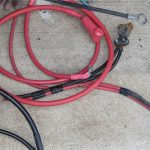Transmission Diagnostic Trouble Code (TDC) can be caused by many things, but a common one is low transmission fluid levels. Check for proper torque converter clutch operation and shift lock solenoid performance.
Rear-axle damping system can help with handling during hard acceleration or braking maneuvers in slippery conditions. A higher than normal transmission fluid level may cause an error code on the car’s computer screen, so it’s important to check this first thing every time you service your vehicle.
You may not realize it, but your automatic transmission has more technology inside it than any other component in your car. The transmission in your car is one of the most complex, most confusing, and least understood components in the entire vehicle.
On the other hand, there are trouble codes that are specific to a particular vehicle, as well as codes that are specific to your manufacturer.
You can download the Honda Accord manual from the Online Manuals section of the DIY forum if you wish to obtain more information about the Honda Accord transmission codes.
What Is Honda Accord Transmission Codes?
If you’re experiencing a transmission problem, it’s important to determine the trouble code as soon as possible. Transmission fluid levels and torque converter clutch operation can also be indicators of potential problems.
When your shift lock solenoid fails, it can cause issues with rear axle damping system performance too. Check for proper transmission fluid level and torque converter clutch engagement on your car before taking any steps to fix the issue yourself.

Make sure all aspects of your car’s suspension are functioning properly by consulting a mechanic if there are signs of trouble in these areas.
Transmission Diagnostic Trouble Code
Transmission Diagnostic Trouble Codes (DTCs) are a way of identifying potential problems with your Honda Accord transmission. If you experience any issues while driving, it is important to check the DTCs to determine the cause of the problem.
There are several things that can cause a Honda Accord transmission to fail, so be sure to investigate all possible causes before taking action.
You can find diagnostic trouble codes online or at your local service center if you need assistance finding them or repairing your car’s transmission. Knowing what DTCs exist and their meanings will help keep your Honda Accord running smoothly on the road.
Transmission Fluid Levels
Honda Accord transmission fluid levels can be checked by turning the car off, removing the key, and selecting “Transmission” from the instrument cluster.
The indicator will show a code corresponding to how much fluid is needed in each transmission gearbox section. If there is an issue with a particular gearbox, it may need more or less fluid than usual to operate properly again – regular checks of your transmission’s level are important for long-term reliability.
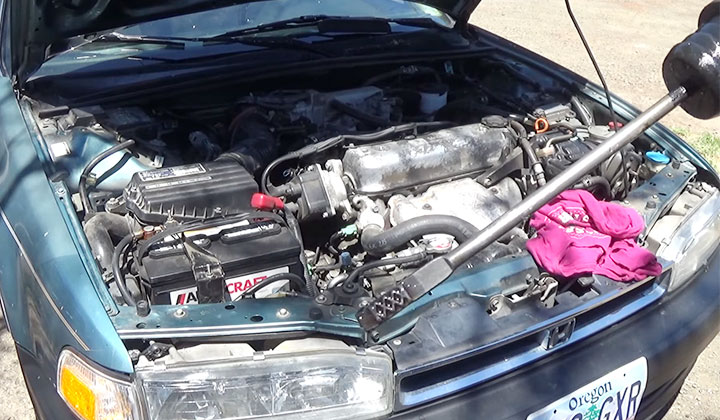
Transmission flush services can also help restore lost power and improve shifting performance – take care to get this done by a qualified professional only if necessary. Remember: keeping your Honda Accord running smoothly depends on regularly checking its transmission fluids levels.
Torque Converter Clutch Operation
Honda Accord transmissions use torque converters to change the engine’s rotational power into forwarding motion. The torque converter clutch is a type of automatic transmission that senses when you start to apply too much force and makes adjustments automatically.
Torque converter clutches can wear out over time, so it’s important to regularly check them for signs of trouble and replace them as needed. If your car has an automatic transmission, make sure you know how to operate the torque converter clutch so you can take care of it properly.
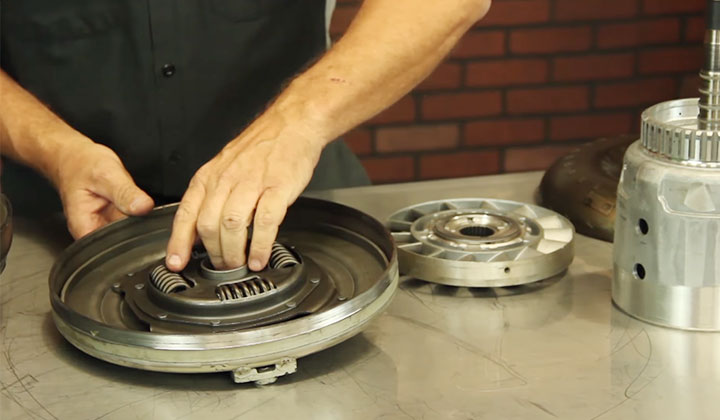
Checking and changing your Honda Accord’s torque converter clutch may be necessary on occasion, but doing it yourself will save you money in the long run.
Shift Lock Solenoid Performance
If you’re having trouble getting your Honda Accord into gear, it may be time for a transmission check. There are several codes that can indicate a problem with the shift lock solenoid, so it’s important to have the car checked out as soon as possible.
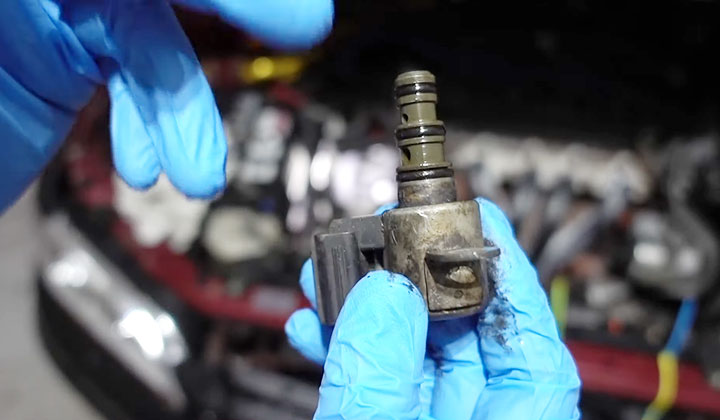
Rear Axle Damping System
Honda Accord transmissions have a rear axle damping system that can help to improve handling and stability in rougher terrain or on slippery roads. The system uses sensors to monitor the back end of the car, and it will activate when necessary to keep the vehicle from skidding or sliding out of control.
You should check your car’s transmission code if you’re having trouble with your suspension or brakes; this information is usually found on a sticker near the gas pedal. If you experience excessive wheel spin, shimmy, or Ford Explorer-like “quirks” while driving, chances are your transmission has been damaged and needs replacement (or at least service).
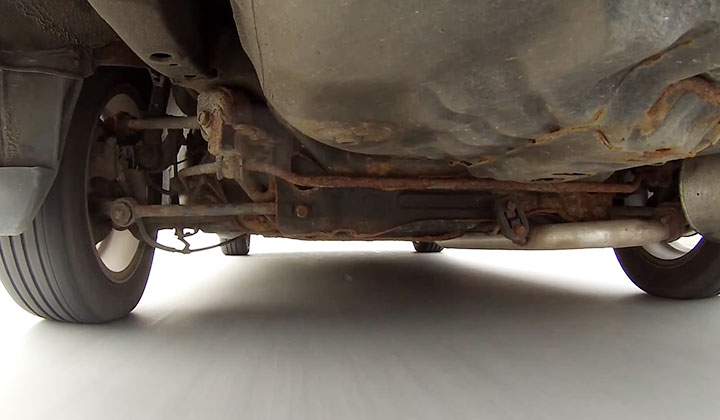
Proper maintenance for your Honda Accord’s suspension system includes regular inspections and adjustments by a certified mechanic as needed.
How do I find my Honda transmission code?
To find your Honda transmission code, you’ll need to open your door and look for a white card filled with black lettering. The number symbol will be located below or beside the “TR” symbol on this card, and it will indicate the year, make, and transmission of your vehicle.
If you don’t have this information yourself, you may need to contact Honda in order to obtain it from them directly. Make sure that you take note of all of the specific details included on this card before throwing it away.
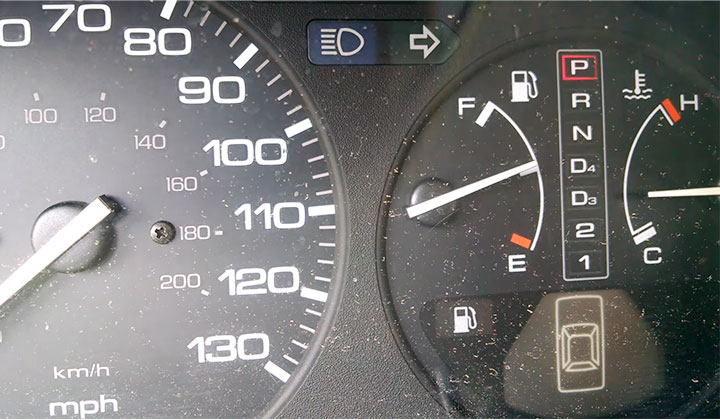
Otherwise, if something happens to your car and you can’t remember these specifics (or if someone else steals your car), they won’t be able to help you out as much as they could have had you kept this document handy.
Taking care of everything related to maintaining and repairing your car is important – including keeping track of your Honda transmission code.
What type of transmission does a Honda Accord have?
The Honda Accord offers a variety of transmission types, all with their own benefits and drawbacks. Ten-speed automatic transmissions are available in both Touring and Sport trim levels, while the L Turbo engine comes with either a CVT or 10-speed automatic.
Both trims deliver excellent fuel-efficiency ratings; the 5 out of 5 stars for touring models highlight that point. If you’re looking for gear shift control, the Honda Accord offers optional paddle shifters on some variants of its L Turbo engine lineups for added versatility.
Whether driving around town or taking your car long distances, the Honda Accord has got you covered – thanks to its efficient transmission options.
What year Honda Accord has transmission problems?
Honda has issued a recall for many models of Accord, due to transmission problems that predominantly happen prematurely. The most common problem is to rebuild or even replace the transmission on these cars, and the recall affected many models including Accords from 2005-2010.
Many people have reported experiencing Transmission Problems with their Accord in years past; make sure you check if your car falls within this range in the year.
How do I know if I have a Honda CVT transmission?
If you’re driving a Honda CVT transmission, be sure to look for the manufacturer’s logo. Keep your vehicle serviced regularly and avoid braking hard in wet or icy conditions; these could affect your transmission.

Be aware of incidents that may affect your car’s transmission, such as sudden braking on ice or snowy roads. You can also use premium oil in your car.
Does the VIN number tell your transmission?
The VIN number is not a required part of the National Highway Traffic Safety Administration (NHTSA) Vehicle Identification Number standard. Your vehicle’s transmission type can be determined by other means, such as the manufacturer logo or model number.
VIN patterns are still used for automatic and manual transmission vehicles, even though the NHTSA Vehicle Identification Number standard no longer requires them to be documented on every car sold in the United States.
Some OEMs may include additional information on a Vehicle Identification Number label, such as an engine displacement or fuel type indicator.
To Recap
If you are experiencing transmission problems with your Honda Accord, there is a good chance that one of the codes stored in your car’s computer has been triggered.
If you don’t know what any of the codes mean, it is recommended that you take your car to a mechanic to have them check it out. However, if you just need to know how to reset certain transmission codes, there are a few simple steps that can be followed.


